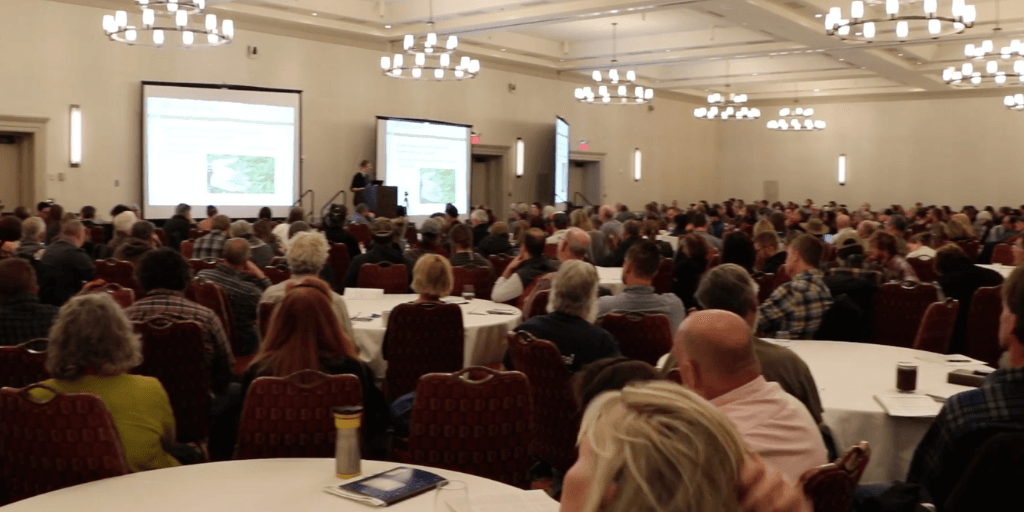NEWPORT — Last week, district manager Sarah Damsell and Land Treatment and Nutrient Management Specialist Emily Irwin attended the University of Vermont’s first Industrial Hemp Conference.
The 2018 Farm Bill defined hemp as an agricultural commodity and removed it from the list of controlled substances.
Each state will eventually be required to submit a plan to monitor and regulate the production of hemp.
Hemp and marijuana are different varieties of the same species, Cannabis sativa L.
To be considered hemp, the crop must contain less than 0.3% THC, the psychoactive component of the cannabis plant.
Hemp can be grown for CBD oil, a cannabinol found in hemp and typically used in health supplements, fiber, or seed.
CBD has several purported health benefits, including relief from inflammation, pain, and seizures.
Many agricultural producers in Orleans County see industrial hemp as a new market opportunity.
The conference was geared towards growers, and sessions focused on topics such as breeding and selection of CBD hemp, pest management, and fertility management.
To grow hemp for high-value CBD production, the hemp plant must be managed as a specialty crop, and given the nutrients and attention it needs to thrive.
Conference sessions also covered other emerging markets for hemp products, including fiber and grain.
There were several representatives present at the conference from state and federal agencies.
Growers wishing to cultivate or process hemp must register with the Vermont Agency of Agriculture, Food, and Markets, and provide appropriate maps, GPS locations, and applicable fees.
More information on the registration process, as well as instructions for how to register online, can be found at http://www.agriculture.vermont.gov/public-health-agricultural-resource-management-division/hemp-program.
There are also federal cost-share programs available to farmers through the Natural Resources Conservation Service (NRCS), including funding available through NRCS for building seasonal high tunnels.
In terms of risk coverage for hemp, the Farm Services Agency (FSA) does not yet have the guidance or authority to apply current FSA programs to hemp.
However, interested growers should stay in touch their local FSA and NRCS representatives, as guidance is still changing.
Vermont Organic Farmers, the certifying arm of the Northeast Organic Farmers Association in Vermont, can certify industrial hemp that is used exclusively for industrial purposes, including fiber and seed.
Hemp oil, consisting of stalk, leaf, seed, or hemp meal intended for human or livestock consumption, cannot be certified organic.
The Orleans County Natural Resources Conservation District will be holding an informational workshop in the next few months that will cover the ins and outs of growing industrial hemp.

